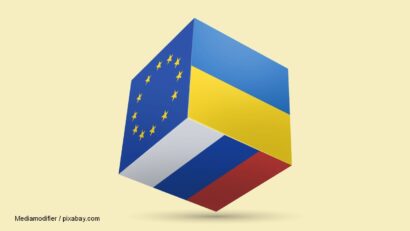Euro-scepticism, a challenge for the architects of Europe
A deficit of democracy, insufficient transparency, lack of flexibility or intricate language are among the main reasons to criticise the EU, underlying the distrust in the European project known as Euro-scepticism.

Corina Cristea, 05.08.2016, 13:03
A deficit of democracy, insufficient transparency, lack of flexibility or intricate language are among the main reasons to criticise the EU, underlying the distrust in the European project known as Euro-scepticism. Analysts mention that Euro-scepticism was originally perceived as a British syndrome, which later on spread to France, Germany, Italy, Spain or Poland, for example. And recent polls indicate that Euro-scepticism is on the rise in Europe.
Here is analyst Iulian Chifu on the causes that trigger this situation:
“There are multiple elements at play here, and the first one is the lack of commitment to re-energise the European project, the lack of confidence in the current leadership, which seems obsolete and out-dated, instead of coming up with new ideas. Secondly, this lack of commitment to the European project is also evident at a national level. For instance, the Netherlands had that referendum on the association with Ukraine, a firm stand taken by pro-European parties in the sense of protecting the European projects and policies already agreed upon, even by the representatives of the Dutch government. And on the other hand, there is this problem of the deficit of democracy. There is an entire theory regarding the power of non-elected officials, more precisely the bureaucrats in Brussels which decide on behalf of the member states, above their heads, instead of elected officials that receive their powers from the citizens of Europe and are directly liable to them for their performance.”
According to Iulian Chifu, some of the secondary effects are the rise of populist, xenophobic, Islamophobic and anti-immigration movements, and all the various categories of responses to European security issues are multiplied and overlapped:
“As a rule, the EU and the European bureaucracy are able to tackle one crisis at a time, and when such crises overlap the EU administrative staff are somewhat at a loss. And I should also add to this the pre-eminence of the great powers, France and Germany mainly, in undertaking European responsibilities. In other words, the rules of democracy change within the EU, with a shift from a 28-state partnership to a decision made by 2 or even 5 main EU members, which gets exported and even imposed on the other EU member countries. This kind of behaviour certainly does not help strengthen the European cohesion, and, more importantly, alleviate the Europeans fears, which therefore fuel the anti-European populist rhetoric.”
The UK referendum brought Euro-scepticism issues back to the forefront. In the Netherlands, a first reaction after the British vote came from the far-right politician Geert Wilders, who called for a similar referendum. The idea was rejected by the national parliament, where PM Mark Rutte, whose country completed its EU presidency, pleaded for preserving the EU unity. Brexit must make the EU aware of the fact that it has a lot of important problems to solve-that it must focus on security, safety and creating jobs, says Mark Rutte, who adds that the EU legislation needs simplifying in all these areas.
In any case, the UK referendum has created a precedent. Will a domino effect follow? All those who are considering leaving the EU will now keep their eyes on what happens in Great Britain, looking for answers to questions like: does the UK independence solve Britains economic problems? Does the country become stronger or not?
Iulian Chifu once again:
“Regardless of what happens with the UK leaving or not leaving the EU, the costs entailed by such a decision will force all the countries considering this to think twice about it. A domino effect is unlikely because some lessons have been learned, and I think that even those who would like a divorce or a break-up or a rearrangement of the relationship between Brussels and the national states are now waiting to see what happens in Britain, which is the second-largest economy of the continent, before they embark on a similar venture. So even those who want to exit will wait and see how it works for Britain, what the benefits will be for this country.”
According to Iulian Chifu, smaller countries cannot afford to leave the Union, because they rely on the single market and on the engines that keep it working. Germany itself cannot afford to break with the bloc, given that most of its exports go to EU countries, that it is the main beneficiary of the common market and this would trigger a major problem. There are also major countries like France, Spain or Italy, whose deficits are so deep that leaving the EU and securing their finances beyond EU capabilities would already mean very high costs, and substantial economic problems.






























